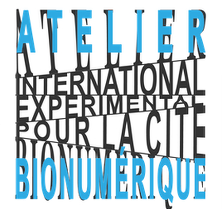
Working and expressing oneself on foresight inevitably leads to a critical look at our contemporary ways of doing and thinking. Foresight disturbs the conformism and therefore requires, to express itself fully, a medium of free expression. Also, when Christophe Leray asked us to open a forward looking section in the architect's mail we did not hesitate. Article published in the Letter of the architect (10-11-2010): http://www.lecourrierdelarchitecte.com/article_919 We understood his remarks and the goal of the editorial team. We therefore immediately adhered to the concept of the journal and the posture it proposes to hold; We understood that we could develop a specific reflection there. If we passionnons for foresight, it is that it helps us to choose our potential futures. It makes it possible to bring together lines of collective choice and to discuss them even before mistakes are made. Foresight is all the more useful as it is constituted in periods of widespread crisis. In history, periods of disturbance, of cultural or technical economic mutations generate a climate of uncertainty. In these moments, architectural thought seems to lose its bearings and this despite the fact that its fundamental social function is to pre-see and to foresee a new framework of life. Often, in these epochs of mutation, at first, it abandons its utopian devices and tries to refine its previous modernities; It académise, as in the late 19th century for example. No one doubts that we are entering today in one of those periods of great troubles and great changes. In this context, this "prospective heading" will first of all be an opportunity to face the contemporary drama that is being played and of which we are at the same time, in the greatest confusion, authors, actors and spectators. Our ambition is to take this mutation from the front, to anticipate it by trying to understand it better and above all to better grasp the effects on our work of designers in architecture, landscape and urban planning. The issue is clear: it becomes indispensable, from our point of view, to reconstruct true scenarios possible, taking into account different new and fundamental contemporary data. For this, it is better to know the phenomena of ageing of our modernity to better combat them within our reflexes and habits. It is also necessary to better evaluate the techno-cultural mutations that we collectively reject by our speeches and assimilate, on a daily basis, in our new practices. New technologies are essential to study because in a few decades they have already completely changed our relationship to reality. They engage us every day a little more in new ways to reason, to organize, to contemplate, to foresee, to interpret, to conceive, to dream, to love, to live. From the appalling computing power of the machines emerge therefore new feelings, new sensibilities and new poems. From there arise new aspirations to a different society, to a status of the individual based on other bases. At the same time, the great imbalances environnentaux us to know better the living environment in which we evolve, to less asphyxiate or even better protect it. The deteriorating state in which we have placed our living environment requires us to always understand it better, to calculate it, to foresee it to better respect it. At the same time, we are forced to put in place new mechanisms of societal reorganization which inevitably create new ways of approaching development and which challenge our modern know-how. For this, the new information processing tools are indispensable and precisely, they are at our disposal. Moreover, in this Machine-nature duality, there is no longer the good nature of Rousseau and its corollary the company ' Pervertissante '. There is no more the good society of progress in the face of barbaric nature. By force of Things, collaborate and enter into synergy two worlds that mankind had opposed for millennia: that of the biological, made by nature and that of the artificial, produced by man. "Nature" and "culture" actually settle in the same complex continuity that Edgar Morin or Joël de Rosnay have repeatedly commented upon. It is within this "living-inert" hybridization that we have tried, in a personal capacity, to situate our work of designers, teachers, researchers and theorists. We have talked about cities, architectures or "bio-digital" landscapes that want to express the need to update these ambiguous relationships between man and nature and between man and his artificial environment. We believe in this double track of a hypertechnicity and an over-assistance of nature. We are therefore, on a personal basis, choosing a hypothesis that we have collectively to verify. We will therefore be well, in this chronicle and we assume it, judges and parties, because we are conditioned by a doctrinal discourse which we also produce in real time. However, we do not intend to situate ourselves in the comfortable position of the chroniclers who simply work to format their readers in order to bring them, discreetly or not, to share their points of view. In the context of constructive debate, we intend to adhere to this formula by accepting the controversy within the architect's mail. Readers will therefore be welcome when they have the will to abound in our sense or to contradict us if they deem it necessary. We have the deep conviction that the future can no longer be built in the wake of some enlightened minds. The new utopia that we propose to develop is intended to be collaborative and participatory. It must be negotiated, fought and supported at the same time, it must be not a subject of dispute but a place of exchange where the contradictory debate becomes a richness. The architect's Mail has opened, through the very structure of its editorial organisation, this possibility of engaging an interactive exchange with the reader, it is in this sense that the prospective section intends to develop its purpose. Claire Bailly and Jean Magerand




